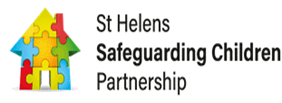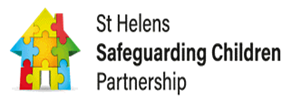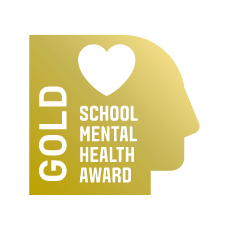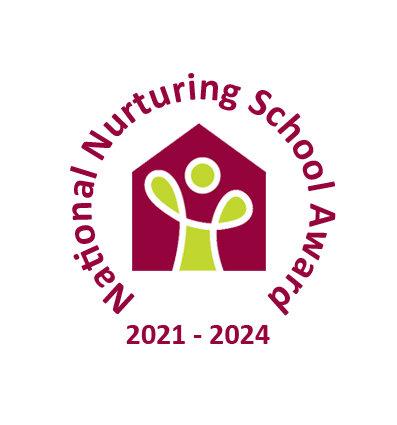Safeguarding Children and Child Protection Guidelines for School Staff and Visitors



This leaflet contains important and sensitive information
Introduction
These guidelines for staff have been produced by the Alternative Provision Service Safeguarding Team to provide information about child protection and the procedures that must be observed. All staff will read, understand and have a copy of Part 1 of Keeping Children Safe in Education.
The protection of children is overseen by St Helens Safeguarding Children Partnership. You should be aware of and have reference to the Safeguarding Children Procedures. This guidance is consistent with the DfE guidance ‘Working Together to Safeguard Children’ . The online procedures manual can be found on the Safeguarding Children Partnership website: https://sthelenssafeguarding.org.uk
The full extent of child abuse is not easily quantified. Research indicates that children are reluctant to report abuse, particularly if it is happening within their family. Abusers come from all walks of life; they may be parents, a trusted adult, a professional or another child.
Everybody who works with children has a duty to help protect them from abuse. All staff must know how to recognise possible abuse both within the setting and externally. You should be familiar with the processes of recording information in your setting and making referrals to Early Help, Specialist Children’s Services and the Police.
Every base and provision is required to have a Designated Safeguarding Lead (DSL) and deputy to ensure there is always someone available to discuss child protection concerns.
Types of Abuse
Physical abuse
Can range from:- over-chastisement, slapping with the hand, a belt, a stick or other object, to shaking, punching or throwing a child across the room. It can lead directly to neurological damage, physical injuries, disability or at the extreme death. Harm may be caused by the abuse itself and by abuse taking place in a wider family or institutional context of conflict and aggression. It also includes a parent/carer fabricating symptoms of or inducing illness in a child. Some physical abuse is reactive, some may be clearly premeditated with intent to cause harm.
Neglect
Can range from ignoring a child’s developmental needs to not feeding or clothing her/him adequately and not properly supervising her/him. Persistent neglect can lead to serious impairment of health and development, and long-term difficulties with social functioning, relationships and educational progress. Neglect may occur by omission or commission it is important that problems for a child’s parent do not obscure neglect of a child in the family. Unborn babies may now be regarded as suffering neglect due to maternal substance misuse. Note: St. Helens use the Graded Care Profile 2 Assessment Tool to assess neglect
Sexual Abuse
Is the involvement of a child or adolescent in sexual activities that she/he does not understand, cannot give consent to and which are not acceptable by in our society. This includes: inappropriate touching, taking of obscene photographs, producing/trading in indecent images of children (including via the Internet), as well as attempted or actual sexual intercourse, adverse effects may endure into adulthood. Sexual abuse can be carried out by women and other children as well as men.
Emotional Abuse
Ranges from rejection, refusing to show a child love or affection, making a child unhappy by continually belittling her/him or verbally abusing her/him. It has an important impact on a developing child’s mental health, behaviour and self-esteem. It may also include developmentally inappropriate expectations including overly high expectations which the child cannot fulfil. Domestic abuse, adult mental health problems and parental substance misuse may be features in families where children are exposed to such abuse. Emotional abuse may occur by omission or commission and it is important the problems of or a child’s parents do not obscure professional views of their child’s emotional development. Serious bullying, causing a child to feel frightened or in danger may be regarded as emotional abuse.
Other Safeguarding Risks
The Alternative Provision Service staff are aware of a range of other safeguarding concerns, including:-
- Child Sexual exploitation (CSE)
- Radicalisation and extremism (The Prevent Agenda)
- Honour based violence (including Female Genital Mutilation).
More information can be found at: https://sthelenssafeguarding.org.uk
Online Safety:
The internet and related technologies provides wonderful opportunities for creativity, learning and communication; however, our setting recognises that there are also risks associated with this, including: sexual grooming, abuse and exploitation, cyberbullying and exposure to inappropriate material.
Online Safety is viewed as part of our schools safeguarding role and responsibility. Members of staff are made aware of the schools online safety policy and procedures, including our acceptable use of technology expectations regarding communication and use of social media.
Further advice regarding online safety can be found at: www.e-safety.org.uk.
Indicators of Abuse
Child Abuse can present in many different ways; there may be physical evidence, such as: marks, bruises or weight loss. Or there may be behavioural evidence, such as: reluctance to change for P.E, becoming aggressive or withdrawn, or a change in normal behaviour.
You may also notice changes in a child’s presentation, friendships or ability to concentrate etc. A child may choose to disclose abuse; this may be directly, by telling you what happened or indirectly, by telling friends or by asking for advice about a situation involving another person.
Staff may also notice concerns and behaviour changes in adults within the setting, including, staff or parents/carers. We ask that you be curious, record and report anything which may worry you to the DSL.
What to do if you are concerned for a child:
Sometimes we may have unconfirmed worries about a child, but have little concrete evidence that abuse is taking place; this can leave us feeling unsure about how to proceed. There have been many cases where unconfirmed worries have turned out to be the tip of the iceberg.
It is vital therefore, that even vague “worries” are recorded and the DSL and Safeguarding Manager are alerted at the earliest opportunity. The DSL will then be in a position to collate all known information, involve other agencies, and decide whether a further referral is required.
Staff should record incidents or concerns in accordance with our policy onto our electronic system CPOMS.
Immediately inform the Designated Safeguarding Lead in the school
The DSL will decide on what action is most appropriate and whether the child should be referred to Early Help or Specialist Children’s Services. To help them decide this, they may consult with the Safeguarding Children Partnership or Duty Team following a discussion with the Safeguarding Manager.
Although we would encourage staff to follow their normal child protection procedures, in certain cases, it may be appropriate for a member of staff to contact the Education Safeguarding Team or Specialist Children’s Services directly, regarding a safeguarding concern, for example if the concern relates to the DSL.
Disclosures
What to do if a child starts to disclose abuse
- Reassure the child that s/he is right to tell and is not to blame
- DO NOT promise not to tell anyone else; explain that you have to make sure the child is safe and may need to ask other adults to help you to do this
- DO NOT question the child; let them tell you what they want to tell you and no more; They may need to have to disclose to a specialist later, and too much detail now may interfere with later investigations.
- When the child is finished, make sure they feel secure and explain what you are going to do next.
- Write down notes, including the date and time of the disclosure and sign them; record as much as you can remember, using the child’s own words.
Referring to Early Help and Specialist Children’s Services
If a child or family needs to be referred to Early Help or Children’s Social Services, the DSL will ensure that a Service Request Form is completed as appropriate. This can be downloaded from https://sthelenssafeguarding.org.uk/scp/scp/workforce/useful-documents
Allegations of abuse made against a member of Staff
When an allegation is made against a member of staff, the Head of school /Chair of Governors must consult with the Local Authority Designated Officer (LADO) who will help to determine how the matter is to be investigated. The LADO is responsible for ensuring that allegations are managed in a proper way.
To make a referral call the LADO Secretary on 01744 671262
or
Complete a LADO referral form on:-
https://sthelenssafeguarding.org.uk/scp/scp/workforce/useful-documents
St Helens LADO email:- sthelenslado@sthelens.gov.uk
Preventative work in the classroom
Our pupils need to learn how to keep themselves safe and how to report concerns.
There are many training and resource packs available to help teachers design a curriculum which empowers children who may be being abused. Various elements can be incorporated into everyday teaching, including issues around safe use of the internet, touch, secrets, positive and healthy relationships, British Values, self-esteem, assertiveness and feelings and emotions.
Details of our Child Protection and other policies are available view at:-
http://paceandlaunchpad.sthelens.gov.uk/sections/whole-service-information/policies-and-procedures
Useful names and contacts:
Alternative Provision Service Safeguarding Team
| Name | Position |
| Mr M Power | Headteacher Alternative Provision Service/DSL |
| Mr A Ford | Deputy Headteacher of Alternative Provision Service/Head of Provision for KS3 & Day 6 Base/DSL |
| Mrs K Crook | Safeguarding & Pastoral Manager/DSL |
| Mrs Clare Dawson | SENDCO/DSL |
| Mr R Vaughan | Head of Provision for Tuition Services/DSL |
| Mrs T Harvey | Head of Provision for Launchpad KS4 & Vocational /DSL |
| Mr S Toole | Head of Provision for PACE/DSL |
Central Safeguarding Unit
Email: safeguardingunit@sthelens.gov.uk
If you suspect a child is at risk of harm, please call If you suspect a child is being abused, please call The Contact Centre on 01744 676767
Or in the case of an emergency outside normal office hours (after 5pm) you can contact the Emergency Duty Team on 0345 050 0148





